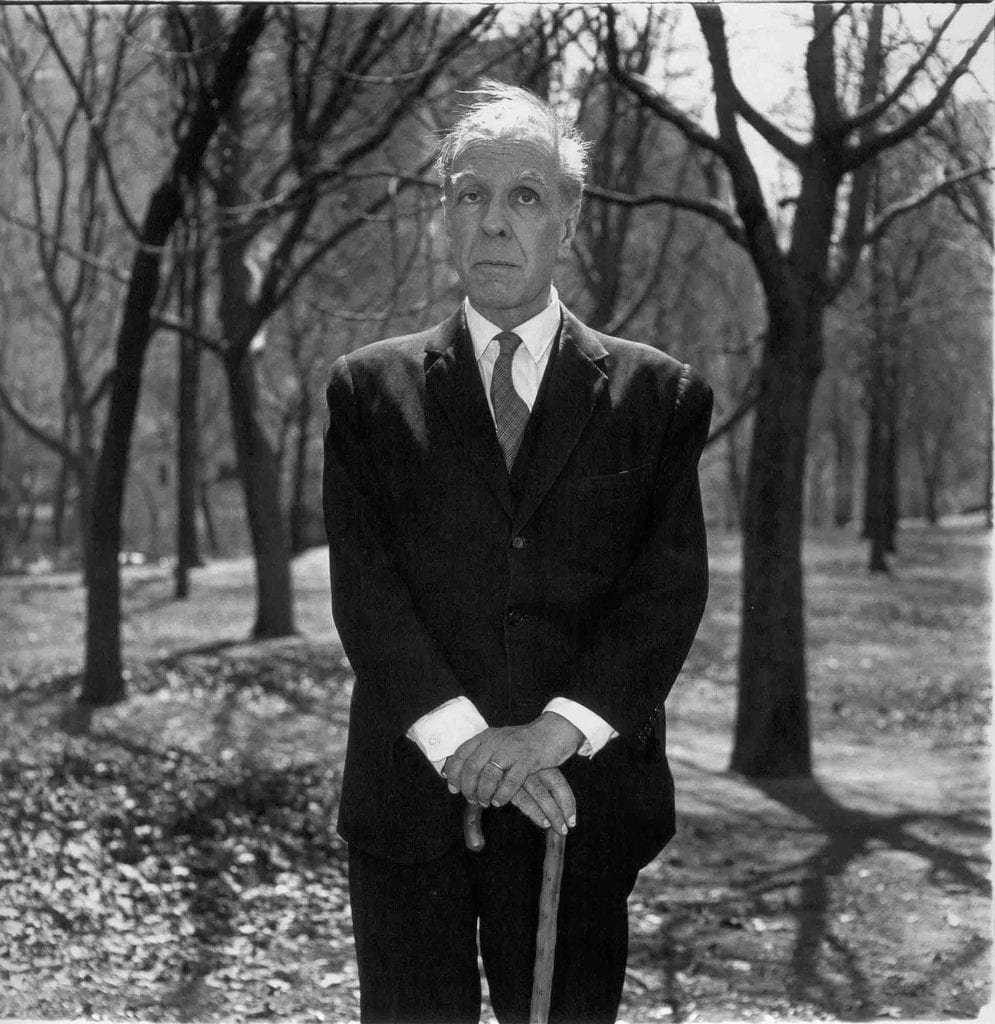
Second part of the review of the stories of the Argentine writer JJorge Francisco Isidoro Luis Borges Acevedo. To read the first part press here. Those that I present today are from his book Fictions (1944): two stories from the first part, The garden of the paths that se fork, and one of the second, Artifices.
The Library of Babel
I just wrote infinite. I have not interpolated that adjective out of rhetorical custom; I say that it is not illogical to think that the world is infinite. Those who judge it limited postulate that in remote places corridors and stairways and hexagons can inconceivably cease — which is absurd. Those who imagine it without limits, forget that the possible number of books has them. I dare to suggest this solution to the old problem: The library is unlimited and periodic. If an eternal traveler were to cross it in any direction, he would verify after centuries that the same volumes are repeated in the same disorder (which, repeated, would be an order: Order). My loneliness rejoices with that graceful hope.
The first story tells us about universe, the nature of God, And scolding. It does so through a metaphor: that of a library, a huge building of hexagonal and identical galleries, which represents reality, or the cosmos. In her, the same volumes, after all who knows if years or millennia, they repeat themselves infinitely many times. Thus the story flirts with the Nietzschean idea of eternal return of the identical.
The Garden of Forking Paths
The Garden of Forking Paths it is an incomplete, but not false, image of the universe as Ts'ui Pên conceived it. Unlike Newton and Schopenhauer, his ancestor did not believe in a uniform, absolute time. He believed in infinite series of times, in a growing and dizzying network of divergent, convergent and parallel times. This web of times that approach, diverge, intersect or are ignored for centuries, encompasses all possibilities. We don't exist in most of those times; in some you exist and not me; in others, I, not you; in others, both. In this, which a favorable chance awaits me, you have arrived at my house; in another, when you crossed the garden, you found me dead; in another, I say these same words, but I am a mistake, a ghost.
"In all of them," I articulated, not without a tremor, "I thank and venerate your recreation of the Ts'ui Pên garden."
"Not at all," he murmured with a smile. Time perpetually forks into countless futures. In one of them I am their enemy.
The Garden of Forking Paths It is one of the most interesting, famous and evocative stories of the Argentine writer. A time metaphor (in the same way as The Library of Babel it is from space) through a fictional chinese novel. In it all possibilities and futures fit, in infinite worlds and alternative realities. At the same time, it prophesies the appearance of modern gamebook y visual novels, where the reader / player must make choices that influence the plot of the story, since its development is not linear, nor is it pre-established.

Funes the memorable
He could reconstruct all dreams, all dreams. Two or three times he had rebuilt a whole day; he had never hesitated, but each rebuilding had required a whole day. He told me: "I have more memories alone than all men have had since the world became the world." And also: "My dreams are like your vigil."
The truth is that we live postponing everything that can be postponed; perhaps we all know deeply that we are immortal and that sooner or later, every man will do all things and will know everything.
The protagonist of our last story is cursed, and at the same time blessed, with the syndrome du savant ("The sage syndrome"), which in his case is manifested with the inhuman (perhaps divine) ability to remember every last detail of its existence. Every leaf on the trees that he has seen, every hair on the eyebrows of all the people he has met. His power is so overwhelming that Funes is forced to stay day and night in a darkened room, to avoid external stimuli that prevent you from resting your tired mind. As a last resort, Funes the memorable it's a tragedy: that of a man incapable of harnessing his superhuman capacity.